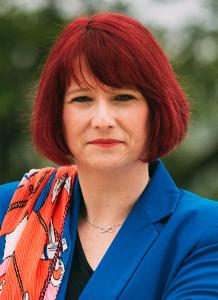Workshop
Details
“New Leaders – New Opportunities” from 9th until 15th of July 2007 in Palic, Serbia. The School put together 18 representatives of the youth branches of the KAS partner political parties from the former Yugoslavia region.
1. REGIONAL SCHOOL GOALS
The goal of the Capacity Building Programme is contribution to the political development and promotion of the regional political cooperation among young leaders of the respected political parties from the former Yugoslavia region, which are associated members or observers of the European People’s Party. General goal of the Regional Democratic School for representatives of the political parties is to provide young leaders with additional knowledge on politics and to develop their social skills aiming at improving their daily political work in respected questions. The objective of the Regional School was also to motivate and qualify participants aiming at improving regional political cooperation, which is extraordinarily important in the current European integrations process.
2. METHODOLOGY
The Konrad Adenauer Foundation and Belgrade Open School always take care of and develop specific and original teaching methods, based on active role of participants in process of elaboration of posed topics, transfer of knowledge and process of capacity building. These methods have always been gladly accepted and highly evaluated from participants, and this was confirmed by participants of this project. Regional Democratic School for representatives of the political parties “New Leaders – New Opportunities” was carried out through interactive lectures, workshops, trainings and simulations. The main characteristic is its multidisciplinary approach in elaboration of posed topics.
2.1. LECTURERS AND ELABORATED TOPICS
Interactive lectures:
–Claudia Nolte, Director of Konrad Adenauer Foundation’s Office in Belgrade;
–Vladimir Pavicevic, MA, Teaching Assistant at the Faculty of Political Sciences, University of Belgrade, Program Director of Department for Advanced Ugraduated Studies, BOS;
–Milan Sitarski, Programme Coordinator at the Belgrade Open School and political adviser.
Trainings:
–Milorad Bjeletic, Executive Director of BOS.
Workshops:
–Annet Doesburg, Foundation of Eduardo Frei trainer, member of General Secretary of Province Flevoland Parliament in Netherlands;
Simulations:
–Vesna Djukic, General Director of BOS;
Lecture Topics:
I)Democracy and Democratic Political Culture
II)Politics and Political System
III)Modern Political Ideologies: Development of Conservatives
IV)Basic Values of the Contemporary Democratic System: Importance of Tradition an Order
V)European Integration Process: Contribution of Demo-Christian Parties
VI)Separation of Powers: vertical and horizontal
VII)Elections and Electoral Systems
Practical knowledge and social skills which were comprehended and developed with trainings, workshops and simulations:
-Characteristics of the Successful Political Team
-Techniques of the Team Work in the Party
-The Team-Roles and the Team-Leader
-Coordination and Communication within the Team
-Communication and Active Listening
-Public Speaking
-Decision Making Process (voting, compromise and consensus)
-Negotiation
-Interests and Conflicts within the Team
-Separation of Powers
-Elections and Electoral Systems
3. EVALUATION OF REGIONAL SCHOOL
The participants highlighted the fact that the main aims of the seminar were accomplished: training and motivating young activists to implement social and political action and their mutual connection in their countries easily. The participants of the Regional school have displayed a great interest and motivation, general education, readiness and desire to learn about the experience of other countries in the region of former Yugoslavia. The young activists also showed great interest to mutually cooperate in the aim of creating modern democratic society, as the precondition which will enable that this region will become the part of the European Union.
All the participants pointed out that they were especially satisfied with interactive methods which featured the entire work in the school, and the knowledge gained in this way, in there opinion, are easier to adopt and last longer. The young activists especially emphasized that the newly-adopted techniques of team work can be applied in all organizations and local communities. And in the end, the participants pointed out the readiness to convey the gained knowledge and skills to employees and associates in their organizations and thereby efficiently contribute to more effective work of the organization they belong to in the aim of creating modern, democratic environment in both local (regional) and global level.
The Regional school participants have declared that the most prominent problems in their organizations are bad communication and lack of cooperation and organization among employees and associates. For these very reasons the participants emphasized that the workshops about communication, active listening, process of decision making, significance and development of team which are especially useful. The participants have pointed out the significance of lectures „Modern political ideologies – the development of the conservatism” and simulation „Post-electoral coalition“, as very useful for their future political activity.
Participant’s comments:
Thank you
The best organization I have experienced so far
All tributes
I would like to participate again in this seminar
More lectures on European Integrations
Great impetus for Serbia on its right way
You were as a family to us
Let’s put together the same crew again
You’re great
This is the best socializing I’ve ever had
4. CONCLUSIONS AND PROJECT’S SUSTAINABILITY
This Regional school project has confirmed the great significance of the additional education of young leaders in the region and pointed out the need for establishing the stronger network between the young representatives of former Yugoslavian countries political parties.
Because of the extraordinary results achieved in this Regional school, we believe that we should continue with the implementation of this project and that all three partner, EFF, BOS and KAS, should endavoue to establish this type of Regional school as the traditional project in order to contribute to the strenghtening of regional cooperation and future of the region based on the democratic and European values.




